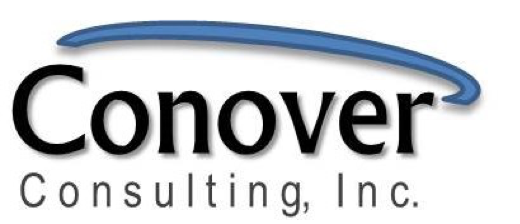Is it Time for a Fresh Look at Skills-Based Hiring?
Skills-based hiring has exploded in popularity in recent years.
Put simply, it’s the practice of hiring workers based on actual, provable abilities rather than education or even experience. Recruiters who use this tactic often start by identifying the specific tasks performed for a particular position, itemizing the skills to perform those tasks, then testing applicants for those skills. College degrees and lengthy resumes—padded or otherwise—are of little concern. For example, imagine a company seeking to hire a digital marketing specialist.
The skills for this job might include:
Proficiency in search engine optimization (SEO) techniques.
Ability to use digital advertising platforms like Google Ads and Facebook Ads.
Familiarity with email marketing platforms like Constant Contact, iContact, and MailChimp.
Competence in content management systems, preferably WordPress.
Mastery of analytics tools like Google Analytics to evaluate campaign effectiveness.
Next, a competency test for these skills might include:
SEO Challenge: The candidate is given a piece of content and asked to optimize it for a chosen keyword.
Digital Advertising Scenario: The candidate is asked to design a mock Google Ads campaign for a fictional product, setting the target audience, budget allocation, and keyword strategy.
Email Marketing Task: The candidate is asked to create a sample email newsletter using a provided template and is asked to ensure it’s engaging with a clear call to action (CTA).
CMS Activity: Using a sandboxed version of WordPress, the candidate is asked to publish a post, integrate a video, and set a featured image.
Analytics Interpretation: Finally, the candidate is asked to review a set of Google Analytics data and provide insights into website traffic sources, user behavior, and campaign conversion rates.
Now, if it happens to be you’re seeking a digital marketing specialist who can hit the ground running, this sure sounds like an effective way to find one. As reported by Forbes, LinkedIn, the Harvard Business Review, and other media, the practice of skills-based hiring is growing rapidly in popularity in both the private and public sectors. The key question is, why?
Proponents tout a number of benefits. These include:
Better candidate quality. Matching skills with positions tends to deliver employees who are actually able to do the jobs for which they’ve been hired. The need to replace mismatched workers decreases along with costs associated with replacing them.
A larger talent pool. Traditional hiring practices can discriminate against people without college degrees, even though these people may have the skills needed to do a particular job. (Although college attendance has been on the rise for decades, only about 40 percent of Americans over 25 actually have a bachelor’s degree or higher.) Skills-based hiring opens opportunities to everyone.
Greater diversity. Not surprisingly, people who do have college degrees tend to come from wealthier families than the population at large. Companies looking to increase workforce diversity are well served by the skills-based approach, which tends to level the demographic playing field.
Faster hires, lower costs. Using skills-based hiring to get straight to the meat of the matter tends to speed up the hiring process, thus lowering the overall cost of recruiting new employees. In short, it’s a win-win for employers and their workers.
But there are downsides to this approach too. For one, the argument in favor of skills-based hiring can be short-sighted. Yes, matching a job candidate with the skills required to perform a specific task makes sense if you’re just thinking about today. But what about tomorrow? And the day after tomorrow? As a far-sighted employer, are you looking to just plug a hole in your org chart, or are you seeking someone who can grow with your organization over time?
In recent years, especially in the decades following World War II, we have come to look at colleges and universities as advanced vocational training centers. We encourage students to pursue “useful” degrees like medicine, law, accounting, business, and STEM, while often mocking those who pursue degrees in “useless” fields like history, literature, and philosophy. But it was not always so. In past eras, higher education was seen as an experience designed to train the mind, to learn critical thinking, and to open one’s self up to a large, complex world.
Given the complexities of life and work in 2023, complexities driven especially by rapid advances in technology and social mores, it seems increasingly important to have an educated workforce capable of thinking through the implications of such changes, to drive innovation, and to help companies adapt. After all, in just the past few years, we’ve seen the collapse of once venerated companies as Pan Am, Sears, Toys R Us, Borders, Kodak, and Bed Bath & Beyond because they couldn’t “keep up with the times.”
Companies need people who can perform lower-level tasks and grow to become leaders, people able to connect ideas and concepts across entire departments and org charts. By all means, hire based on skills, but don’t ignore the benefits of a trained mind. And when you’ve found your skilled workers, please invest in their continued training and education. Like Starbucks, which has a robust employee higher-education program, you will likely find that the ability to develop new skills, not just employ existing ones, is the true key to long-term success.
Would you like to know more about how your company can develop today’s employees into tomorrow’s leaders and innovators? Feel free to drop me a line at laura@conoverconsulting.com.

